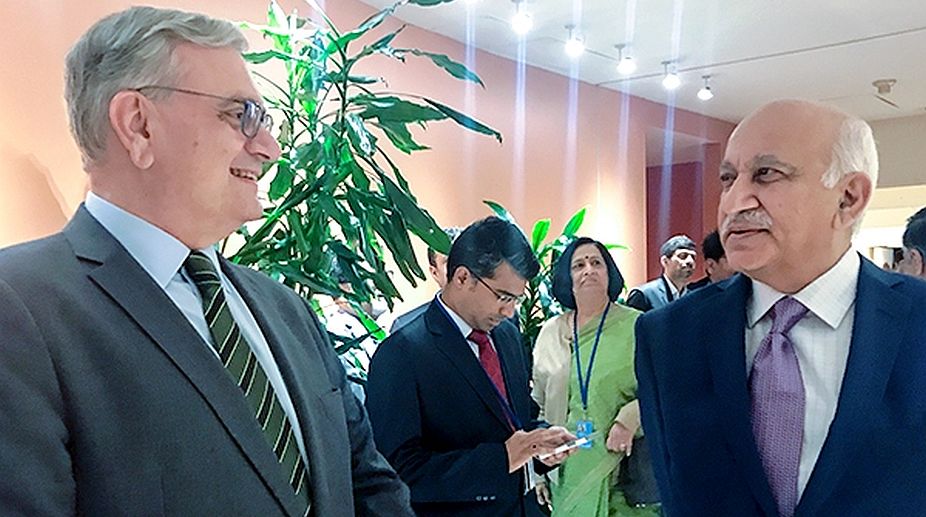The India-UN Development Partnership Fund has been launched here to help the poorest countries achieve the world organisation's Sustainable Development Goals (SDGs) to reduce poverty and raise the quality of life in order "to meet the challenges of our times".
Marking a milestone in South-South Cooperation, the fund launched on Thursday will be managed by the UN Office of South-South Cooperation (UNOSSC), and will focus on least developed countries (LDCs) and Small Island Developing States (SIDS).
Advertisement
"We are confident that this partnership will meet the challenge of our times – shared prosperity," M.J. Abkar, the Minister of State for External Affairs, said at the launch of the Fund.
Emphasising the importance of helping build up the LDCs and SIDS, he added, "If the 21st century is going to be a egalitarian age, nations are no longer big or small, they are Fundamentally equal."
India's Permanent Representative Syed Akbaruddin told IANS that the Fund will start with an initial contribution of $1 million for its first project, Climate Early Warning System in Pacific Island Countries (CEWSPIC).
Secretary-General Antonio Guterres hailed the starting of the Fund as the strengthening of India's partnership with the UN system.
He said in a message: "South-South Cooperation is a powerful tool as we advance, together, towards the Sustainable Development Goals and fulfil the promise to leave no one behind."
UNOSSC Director Jorge Chediek said during the launch of the Fund that it was yet another example of India's contributions to "shaping a better world" and its "notable leadership and drive towards ensuring that no one is left behind, both in India and worldwide."
Akbaruddin said at the launch: "India's approach to cooperation can be summarized as Vasudhaiva Kutumbakam, or the whole word is one family" and this drives nation's South-South Cooperation.
Akbar said later at the UN Ocean Conference that the inaugural project, CEWSPIC, seeks to develop for Pacific island countries an early warning system for extreme weather conditions related to el Nino, the periodic warm ocean currents that seriously impact the climate system.
The project was developed jointly by India and the UN Development Programme (UNDP) for seven countries — the Cook Islands, Kiribati, the Marshall Islands, Micronesia, Nauru, the Solomon Islands and Tonga.
Nauru's Home Affairs Minister Charmaine Scotty said Nauru and other island nations grapple with the impact of climate change and this project was a "demand-driven responsiveness of the Fund to the needs SIDS."
Tanmaya Lal, India's Deputy Permanent Representative, Manish Chauhan, the Joint Secretary for UN Economic and Social Division in the External Affairs Ministry, and Chediek make up the Fund's board of directors.









